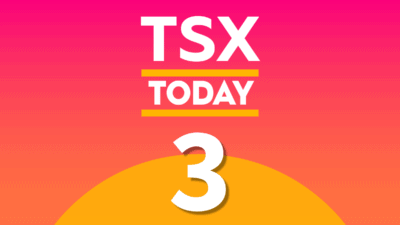Last week was the worst on record since the Great Recession. Many improperly diversified investors saw their portfolio end the month of February with double-digit percentage losses amid mounting fears that the continued spread of the coronavirus (COVID-19) will propel us into a recession.
Indeed, there’s significant uncertainty when it comes to novel diseases that are spreading rapidly in spite of “draconian” containment efforts at the epicentre. The coronavirus is seen by some as the black swan event that could mark the beginning of a multi-year bear market, but the fact remains that we still know too little about the virus to know with any degree of accuracy what the future holds.
It’s nearly impossible to predict when the virus will be eradicated and the total impact it will have on the global economy.
As you’re probably well aware, investors detest uncertainty. Add fear-inspiring pieces dominating the headlines in the mainstream media into the equation and you’ve got yourself a panic-driven sell-off.
Don’t panic: it’ll do you no good
The cloud of uncertainty is just too large, and for individual investors, it’s not worth trying to bet on the outcome of the horrific exogenous event.
Everybody is in a panic, and if you read too much into what’s been troubling the markets of late, you’ll only add to your worries and increase your chances of making a rash decision with your investment portfolio.
Nobody made money by panicking. If you followed the herd out of stocks on Friday’s massive market purge, you missed out on the Dow Jones’ biggest single-day point rally in its history, as it skyrocketed 5.1% in a single day.
Indeed, last Friday’s last day of vicious selling was the last straw for many investors who were trying to limit their losses. And if rattled investors acted on emotion, they locked-in their losses, missed one of the best up days ever, and severely stunted their returns.
If ever you find yourself in a state of panic, just don’t act.
Selling stocks on panic is akin to posting on social media while under the influence of alcohol, marijuana, or any other mood-altering drug. You’ll surely regret it the day after, or in the case of investing, the next trading day after, as was the case on Monday, when stocks bounced back from one of the worst days in recent memory.
Do be a contrarian
It’s never a good idea to trade the outcome of an exogenous event; it equates to gambling, and we’re not about that here at the Motley Fool Canada. We’re all about long-term investing and buying pieces of businesses at what we think are discounts to their intrinsic value.
Like Warren Buffett, I don’t know what the markets are going to do in the near- to intermediate-term. Monday’s rally could very well be a dead cat’s bounce (or a bull trap), but regardless, investors should be thinking about putting some money to work after the market correction if they’ve yet to do so already.
If a stock on your radar is now at an attractive valuation, given the new slate of risks brought forth by the coronavirus, it makes sense to hold your nose and buy.
Do be patient
It pays to be greedy while others are fearful, but it’s also possible to be too greedy while others are just mildly fearful.
For instance, if you bought on the first significant drop last Monday, you got punished with four days of steep losses. If you spread your bets gradually on the way down, though, with more cash on the sidelines for a bear market, you’re well positioned to come out ahead when the markets inevitably recover from oversold territory.
Keep your powder dry and put it to work gradually over time, so you’ll have a plan to invest through a down market regardless of how much uglier things get.
Stay hungry. Stay Foolish.







